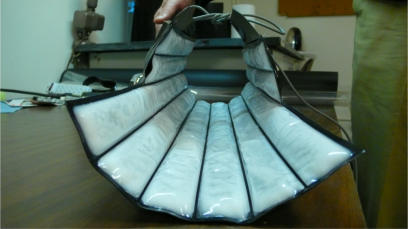 Challenge
Challenge
Hypothermia, or low body temperature, is a leading cause of infant mortality in low-resource areas—even in places with warm climates like sub-Saharan Africa and South Asia. Underweight and premature babies are particularly vulnerable to hypothermia, which increases mortality risk and can lead to poor growth and neurodevelopmental delays.
Where We Started
While incubators are broadly used in the United States to address hypothermia, they require electricity, are expensive, complicated to use, and difficult to clean and maintain—making them unsuitable for developing countries.
Our Impact
Anne Hansen, MD, MPH, Medical Director of Boston Children’s Neonatal Intensive Care Unit, collaborated with the Lawrence Berkeley National Laboratory (Institute for Globally Transformative Technologies) to develop a heating pad that can keep a newborn warm for up to six hours without the need for electricity—ideal for settings with limited resources. Hot water, which can be easily and universally accessed, is used to warm the pad. The pad’s plastic coating can be washed with soap and water, making it sanitary and readily reusable. Following a successful pilot study, Dr. Hansen is now launching a large-scale trial of the warmer in preventing and treating neonatal hypothermia, which will include 10 hospitals across rural Rwanda.
You Can Make a Difference
With your support, we can continue to scale out this innovation to improve neonatal mortality and develop innovative low-cost solutions that can help improve and save lives worldwide.